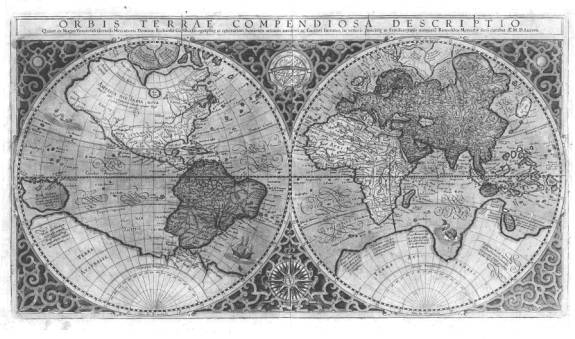LITR 5734:
Colonial & Postcolonial Literature

Course objectives: (1-3 = Primary Objectives—themes and outcomes
throughout seminar discussions and exams)
1. To bring classic literature of European colonialism and emerging literature from the postcolonial world into dialogue.
-
Such textual dialogues may be conscious debates between contemporaneous authors or exchanges suggested by readers.
-
Central theoretical terms for such readings are “Historicism” and "Intertextuality."
1a. Intertextuality: To read literary texts as political, economic, and demographic products and agents that provoke responses from other voices and traditions—not exclusively as timeless, autonomous, universal masterpieces.
1b. Historicism: To counter challenges to global knowledge and planetary identity by enhancing knowledge and identifying persistent oppositional themes or identities in cross-cultural dialogues:
-
modernity vs. tradition.
-
first world vs. third world
-
national or ethnic “purity” vs. “hybridity”
1c. To model and mediate the “culture wars” between the “old canon” of Western classics and the “new canon” of multicultural literature by studying these traditions together rather than separately.
1d. To extend this dialogue to a contemporary “third wave” after colonialism and postcolonialism: Can a “post-national” identity be imagined and articulated?
2. To theorize the novel as the defining genre of modernity, both for early-modern imperial culture and for late-modern postcolonial culture.
2a. By definition, the genre of the novel combines fundamental representational modes of narrative and dialogue. These modes respectively control and decenter storytelling.
-
Alternately, narrative and dialogue respectively foreground literate and spoken voices. Especially in postcolonial literature the narrator may be a “literate” voice, while characters’ voices represent unwritten, spoken, or oral traditions—another intertextuality.
-
How may literary fiction instruct or deepen students’ knowledge of world history and international relations compared to history, political science, anthropology, etc.?
2b. To extend the intertextuality of the novel or fiction to poetry and film by colonial, imperial, or post-colonial sources, especially Derek Walcott of St. Lucia, West Indies (b. 1930; Nobel Prize for Literature, 1992).
3. To witness Americans’ difficulties with colonial and postcolonial discourse—and learn from this perspective.
3a. Is America (USA) an imperial, colonial, or neo-imperial nation, or an “empire in denial?” (Niall Ferguson)
-
Compare and contrast history of America as last or only “superpower” with history of previous empires like Rome and England.
-
Issues of American ignorance of larger world and alternative worldviews
-
What are the colonial-postcolonial experiences and literatures of the Middle East?
3b. Compare or contrast the United States’ colonial status and independence from England with other countries’ colonial and postcolonial states.
-
The United States is comparable to Australia, South Africa, and Israel in that “settlers” displaced or exterminated native populations.
-
In contrast, indigenous populations in Africa, Asia, and some Pacific areas have colonized by a layer of foreign administrators or capitalists.
3c. Does American resistance to or ignorance of postcolonial criticism react to this discourse’s development from outposts of the former British Empire and French / Francophone traditions?
-
Hot-bloodedness, symbolic quarrels rather than cool analysis and real wars
-
Extravagance playfulness of vocabulary, terminology, occasional indifference to nuances in favor of spectacular or dramatic effects
-
Cosmopolitan leftist defense of exploited over provincial bourgeois indifference
-
Issues of American ignorance of larger world and alternative worldviews
(Secondary Objectives)
4. To observe representations or repressions of gender in the traditionally male-dominant fields of cross-cultural contact and literature.
5. To relate postcolonialism and postmodernism. (These movements emerge together in the later twentieth century and share some stylistic traits.)
6. To develop environmental thinking. Discussions of demographics, population dynamics, immigration, climate change, and other global environmental issues often take place in terms of developed and undeveloped nations, modernization, and “space and place.” (Compared to traditional cultures of the “Third World,” modern cultures of the “First World” or “global culture” usually have little attachment to particular places. Sense of “place” or “rootedness” gives way to abstract space: modern airports, hotels, or malls.)
7. To register and evaluate the persistence of millennial or apocalyptic narratives, images, and themes as a means of comprehending or symbolizing the colonial-postcolonial encounter.
